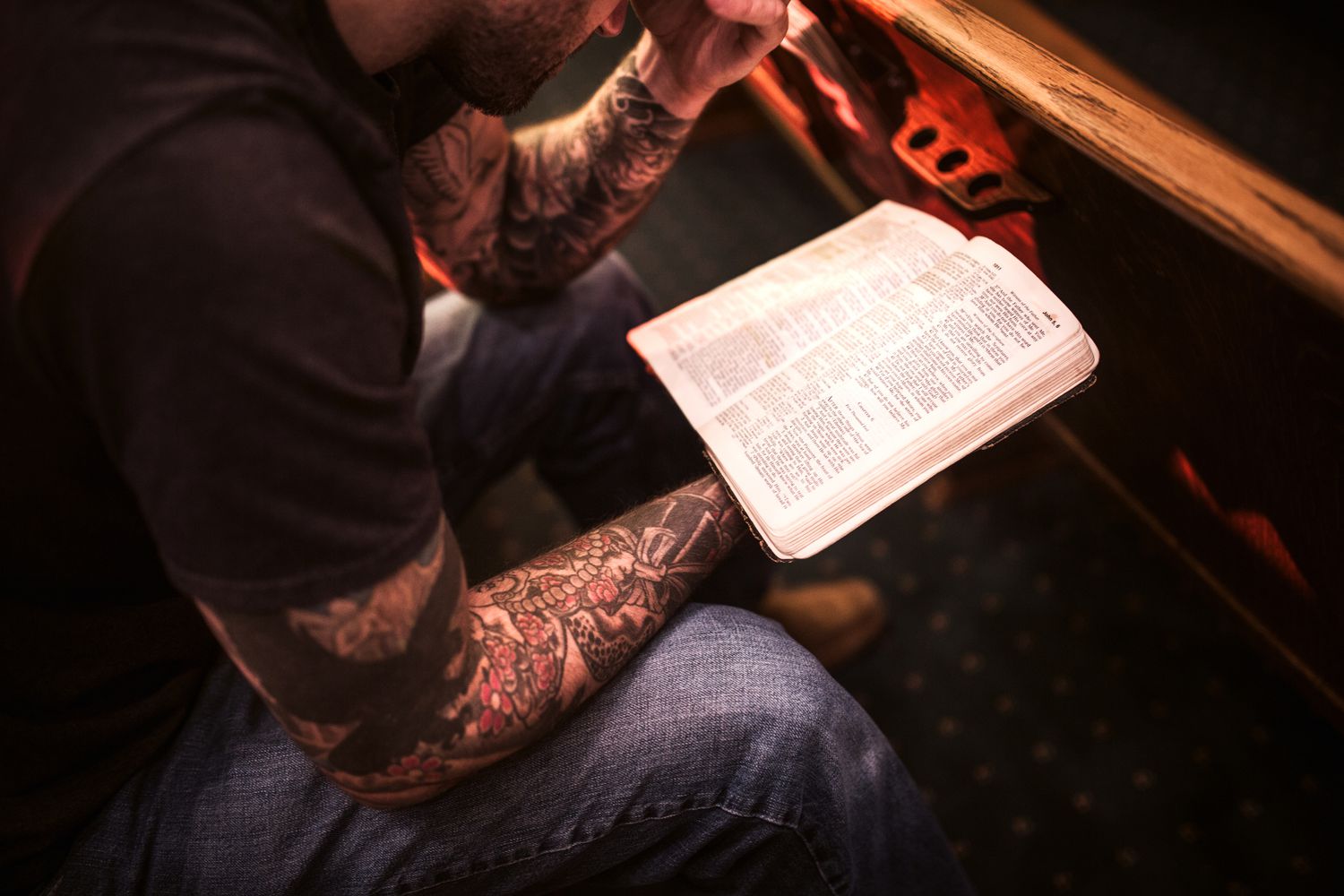The Bible’s stand on tattoos and body piercings is an age-old discourse. Tattoos and body piercings have become increasingly popular forms of self-expression in today’s society. However, as a person of faith, you may be curious about what the Bible says on this topic. While the Bible offers some guidance, Christians may interpret these scriptures differently. Some embrace tattoos and body piercings as a form of artistic expression, while others may choose a more conservative path, considering the potential impact on their witness and the teachings of their faith community.
This article delves into the scriptures to provide an in-depth understanding of what the Bible says about tattoos and body piercings. Additionally, we will briefly touch upon the perspective of the Quran on this matter.
What the Bible Says about Tattoos:
When examining the Bible’s teachings on tattoos, we often refer to Leviticus 19:28, which states, “You shall not make any cuts on your body for the dead or tattoo yourselves: I am the LORD.” This verse appears in the Old Testament, specifically in the book of Leviticus, which contains various guidelines and commandments for the ancient Israelites.
It is important to understand the historical context behind this verse. In biblical times, some pagan cultures engaged in practices that involved cutting and tattooing oneself as a form of mourning or idol worship. Thus, God prohibited the Israelites from partaking in such practices to maintain their distinctiveness as His chosen people.
However, it is worth noting that the New Testament does not explicitly address the issue of tattoos. As Christians, we are under the new covenant brought by Jesus Christ’s sacrifice. While some argue that the Old Testament laws still apply, it is crucial to interpret them through the lens of Jesus’ teachings, emphasizing love, forgiveness, and freedom in Christ. In the New Testament, there is an emphasis on the inward state of a person rather than external appearances (1 Samuel 16:7, Matthew 23:25-26).
As with any subject, when considering getting a tattoo, it is prudent for Christians to seek guidance from prayer, personal conviction, and the leading of the Holy Spirit.
What the Bible Says about Body Piercings:
When it comes to body piercings, the Bible provides instances where individuals adorned themselves with jewelry. For instance, nose rings are mentioned in Genesis 24:47 and Ezekiel 16:12. This suggests that the Bible doesn’t inherently oppose body adornments.
Exploring the biblical narrative further, we find that God adorned His people with jewelry, emphasizing a positive connotation to personal ornamentation (Ezekiel 16:11-13). This perspective sheds light on the idea that body piercings, when done modestly, may not be in direct conflict with biblical principles.
While the Bible does not explicitly address body piercings, some bible verses provide insight into the principles behind this practice. In 1 Corinthians 6:19-20, the Apostle Paul writes, “Or do you not know that your body is a temple of the Holy Spirit within you, whom you have from God? You are not your own, for you were bought with a price. So glorify God in your body.”
Read Also:
- Tattoo Model Turns ‘Vampire Queen’ and Flaunts Custom-Made Fangs Online (Photos)
- Beijing Asks Chinese Football Players To Remove Their Tattoos
- Fans Lines Up For Messi Tattoos In Argentina
This verse emphasizes the importance of treating our bodies with respect and dignity since they house the Holy Spirit. Applying this principle to body piercings, Christians should approach this practice with discretion, ensuring that it aligns with biblical principles of modesty, moderation, and respect for oneself and others.
The Perspective of the Quran:
In Islam, the Quran does not explicitly condemn tattoos or body piercings. However, the interpretation of Islamic teachings on this issue varies among scholars. Some argue that it is permissible to get tattoos or piercings for cultural or aesthetic reasons as long as they do not involve explicit symbols or violate other Islamic principles such as modesty and purity. Others take a stricter stance, considering any alteration of the body as impermissible.
As with any religious matter, Muslims seeking guidance on tattoos and body piercings should consult their local religious authorities or scholars who can provide specific interpretations based on individual circumstances.
Bible Verses as Tattoo Inscriptions, Inked in Faith:
Many individuals who choose to get tattoos often opt to include Bible verses as part of their designs. These verses hold personal significance and serve as a constant reminder of their faith. Some popular choices include Philippians 4:13, which states, “I can do all things through Christ who strengthens me,” serving as a source of encouragement and empowerment. Another widely tattooed verse is Psalm 23:1, “The Lord is my shepherd; I shall not want,” symbolizing trust in God’s provision and guidance. Furthermore, Romans 8:28, “And we know that in all things God works for the good of those who love him,” serves as a reminder of God’s faithfulness even in difficult circumstances. These bible verses, among others, are cherished by many believers and serve as powerful declarations of their faith journey through tattoos.
When it comes to tattoos and body piercings, personal convictions play a significant role. Some individuals may personally feel convicted that permanent markings on their bodies go against their faith, while others view them as a form of artistic expression with no negative spiritual implications. It is essential to respect individual interpretations and beliefs while remaining guided by scriptural principles of love and acceptance.
As Christians, it is crucial to balance personal freedom with biblical principles of stewardship. While the Bible does not explicitly endorse or condemn tattoos and body piercings, it encourages believers to live lives that honor God, valuing modesty, humility, and respect for oneself and others. This principle guides individuals in making wise choices concerning body modifications.

